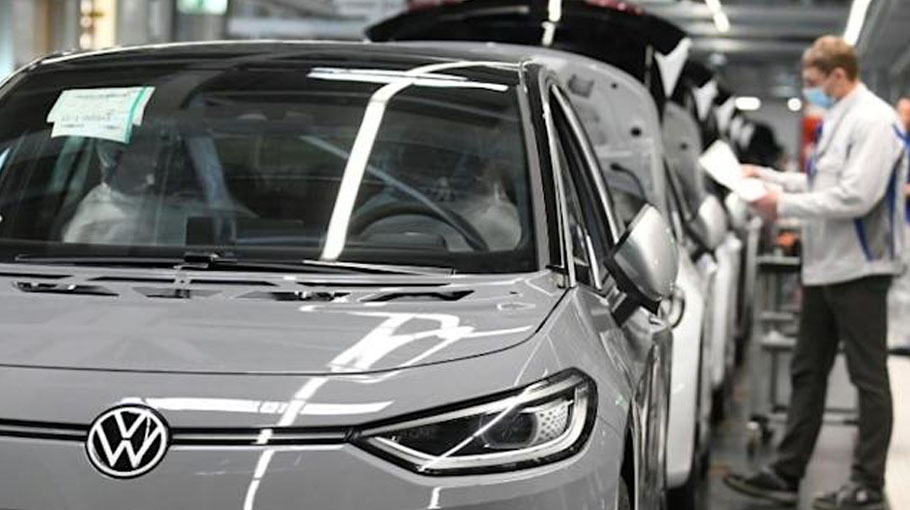Germany’s bottleneck blues choke off economic comeback

The German statistics agency will on Friday publish its estimates for the country's economic growth in 2021, a year that began with high hopes but was beset by supply issues and renewed virus restrictions.
Europe's biggest economy is estimated to have seen growth of around 2.6 percent last year, according to the latest government forecasts, a significant improvement on 2020, when the outbreak of the coronavirus pandemic saw it plunge 4.9 percent.
But back in October 2020, the expectation from officials was that Europe's powerhouse would roar back in the coming year with 4.4 percent growth.
The estimates were progressively revised down as supply shortages put fetters on industry and new health restrictions to combat further virus waves dampened the economic mood.
"On the whole, 2021 was a big economic disappointment for Germany," said Carsten Brzeski, head of macroeconomics at ING.
"Despite the big fiscal stimulus given by all European countries, Germany is not coming out of the pandemic stronger or faster than anyone else, rather, as one of the last," Brzeski said.
The economic boost promised by then Finance Minister Olaf Scholz in 2020 became a "bust", Brzeski said.
A year on, Scholz, now chancellor after his Social Democrats topped the polls in a general election in September, faces the same challenges to get the economy going again.
- No 'post-virus boom' -
Attempts to manage the spread of the coronavirus bookended a year in which business struggled to get going.
Under the weight of new health restrictions introduced to tackle rising case numbers, the economy was flirting with a fourth quarter of flat or negative growth in 2021.
The pandemic has also been at the root of upheaval in global supply chains, leading to shortages of raw materials and components that have hampered industry month after month.
German manufacturers, with their vast web of suppliers and reliance on exports, have been particularly hard hit by the widespread shortages.
The country's flagship carmakers were forced to interrupt production at their factories to manage a shortage of chips, a key component in both conventional and electric vehicles.
A total of 2.62 million cars were sold in Germany last year, according to the federal transport authority, 10.1 percent less than in 2020, a year in which the industry had already seen numbers plummet due to the pandemic.


